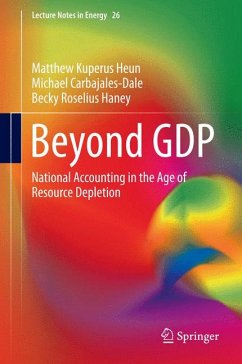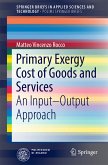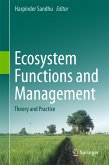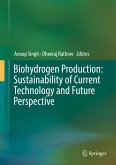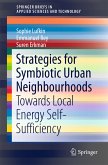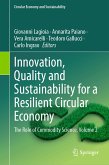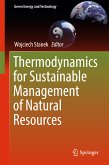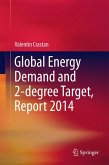After arguing that the stock of manufactured capital is an important driver of material and energy demands imposed upon the biosphere, a new accounting framework is derived from the laws of thermodynamics to reflect the fact that material and embodied energy accumulate within the capital stock of economic sectors. This framework extends the Energy Input-Output (EI-O) techniques first developed by Bullard, Herendeen, and others to estimate energy intensity of economic products. Implications from the new framework are discussed, including the value of economic metrics for policy-making, the need for physically-based rather than product-based EI-O formulations, a re-assessment of the concept of economic "growth," and an evaluation of recycling, reuse, and dematerialization. The framework also provides an opportunity to assess an array of definitions for Daly's "steady-state economy" in relation to the ideal of a sustainable economy.
The book ends with a list of steps to be taken toward creating a more comprehensive system of national accounts:
· National accounting agencies worldwide should develop and maintain balance sheets of both natural and manufactured capital in addition to national incomestatements,
· All stocks and inter-sector flows should be provided in physical as well as financial units,
· In the US, the Bureau for Economic Analysis (BEA) should restart detailed Capital, Labor, Energy, Material, and Services (KLEMS) reporting,
· National accounting agencies should routinely estimate the energy intensity of economic products,
and all of the above should be estimated and disseminated on an annual basis.
Dieser Download kann aus rechtlichen Gründen nur mit Rechnungsadresse in A, B, BG, CY, CZ, D, DK, EW, E, FIN, F, GR, HR, H, IRL, I, LT, L, LR, M, NL, PL, P, R, S, SLO, SK ausgeliefert werden.
-Herman Daly, Emeritus Professor, School of Public Policy, University of Maryland
"Heun, Dale, and Haney present a powerful and insightful overview of our economic system and how GDP is connected to biological and physical systems at the extractive interface (agriculture and mining sectors). It begins with a rigorous analytical framework that tracks the flows of materials, energy, and embodied energy to characterize the "footprints" we leave on the planet as our lifestyles "consume" the various components of GDP. The book's major contribution is to show how the incomplete national accounting data systematically underestimates the impact of these footprints, especially during rapid energy infrastructure transitions like the one currently underway. With incomplete data we do the wrong things! For academics, policymakers, and students alike, the book provides a fresh perspective and constructive proposals based on a solid analytical foundation.
-Clark W. Bullard, Professor Emeritus, Mechanical Sciences and Engineering, University of Illinois at Urbana-Champaign

